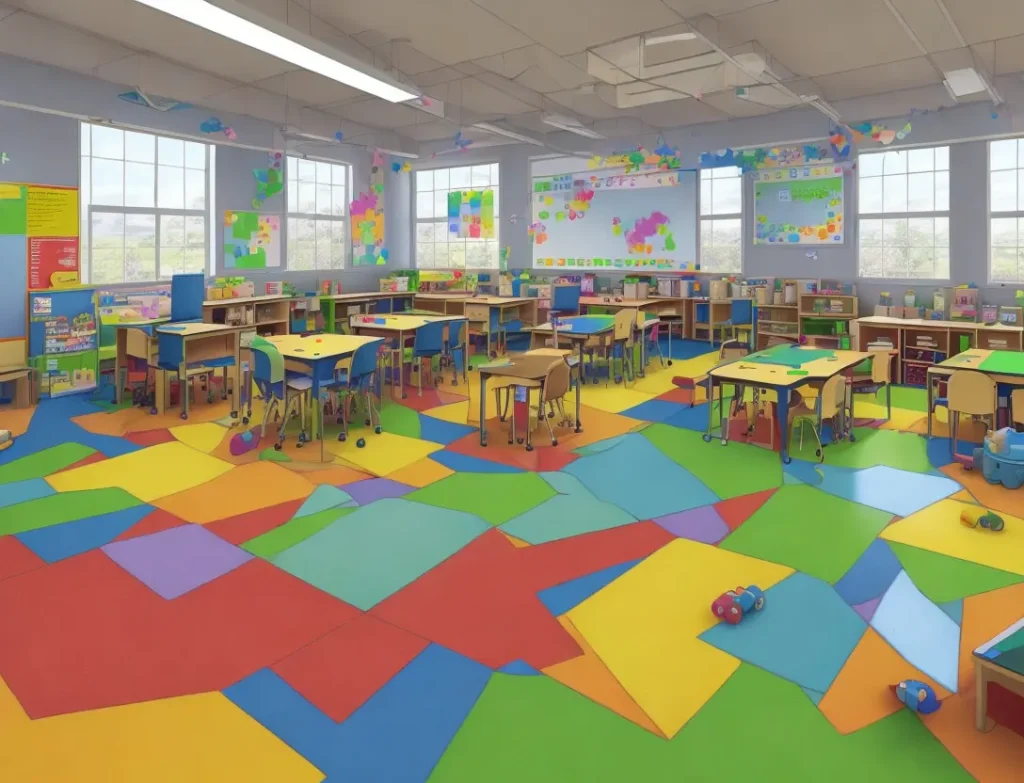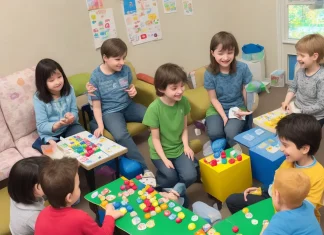Empowering Every Child
Inclusive education is a fundamental approach that aims to ensure every child, regardless of their abilities or disabilities, has the right to receive quality education in a mainstream school environment. When it comes to autistic kids, inclusive education becomes even more crucial. This article will delve into the significance of consulting for inclusive education of autistic kids and explore the strategies and practices that can be implemented to create an inclusive and supportive learning environment.
Challenges Faced by Autistic Kids in Traditional Education

Lack of Understanding and Support: In many traditional educational settings, there is a lack of understanding about autism spectrum disorder (ASD) and the unique needs of autistic kids. This results in a lack of proper support and accommodations, making it difficult for these children to thrive academically and socially.
Social Isolation and Bullying: Autistic kids often face social challenges, which can lead to isolation and even bullying. Without the proper support and guidance, these children may struggle to form meaningful connections with their peers, impacting their overall well-being.
Communication Barriers: Communication is an essential aspect of learning, but autistic kids may face difficulties in verbal and non-verbal communication. In traditional classrooms, where teaching methods are not tailored to their needs, these children may struggle to express themselves effectively.
The Role of Consulting in Inclusive Education for Autistic Kids

What is Consulting for Inclusive Education?: Consulting for inclusive education involves the collaboration of experts, educators, and parents to create an inclusive and nurturing environment for autistic kids. Consultants provide valuable insights, training, and support to ensure that the specific needs of each child are met.
How Consultants Assist in Creating Inclusive Environments: Consultants play a pivotal role in fostering inclusive education by conducting assessments, creating individualized education plans (IEPs), and guiding teachers and staff on implementing inclusive teaching strategies.
Strategies for Inclusive Education
Individualized Education Plans (IEPs): IEPs are personalized plans designed to address the unique needs of each autistic child. These plans outline specific goals, accommodations, and support services required to help the child succeed in the mainstream classroom.
Collaborative Team Approach: Creating an inclusive environment involves collaboration between teachers, therapists, support staff, and parents. Working as a team ensures that all stakeholders contribute to the child’s development and progress.
Sensory-Friendly Classrooms Autistic kids may have sensory sensitivities, and sensory-friendly classrooms can help create a conducive learning environment. This involves reducing sensory overload and incorporating sensory tools and spaces.
Assistive Technology Integration: Integrating assistive technology can enhance the learning experience for autistic kids. Specialized devices and software can aid communication, organization, and learning.
Training and Development for Teachers and Staff

Understanding Autism Spectrum Disorder (ASD): To create an inclusive classroom, teachers and staff must receive training on autism spectrum disorder. Understanding the characteristics and needs of autistic kids is crucial for effective teaching.
Implementing Inclusive Teaching Practices: Inclusive teaching practices involve modifying teaching methods to accommodate diverse learning styles and needs. This approach benefits all students, including those with autism.
Promoting Sensitivity and Empathy: Promoting a culture of sensitivity and empathy in schools helps create a compassionate and inclusive community that supports all students.
Creating a Supportive School Environment
Fostering Acceptance and Inclusion: Schools should actively promote acceptance and inclusion, fostering a sense of belonging for all students, including those with autism.
Encouraging Peer Relationships: Building positive peer relationships is essential for the social development of autistic kids. Encouraging inclusive interactions helps break down barriers and create friendships.
Addressing Bullying and Discrimination: Efforts must be made to address and prevent bullying and discrimination against autistic kids. Creating a safe and accepting environment is crucial for their emotional well-being.
Involvement of Parents and Caregivers
Collaboration with Families Consultants and educators should collaborate closely with parents and caregivers to understand the child’s strengths, challenges, and goals.
Home-School Communication Open communication between home and school ensures that parents are actively involved in their child’s educational journey and can provide support at home.
Community Involvement and Resources
Partnerships with Autism Organizations Collaborating with autism organizations provides access to valuable resources, workshops, and support networks.
Access to Therapeutic Services Having access to therapeutic services, such as speech therapy and occupational therapy, can greatly benefit autistic kids’ progress.
Overcoming Barriers to Inclusive Education

Advocacy and Policy Changes Advocacy for inclusive education policies and practices can lead to systemic changes that benefit all children with special needs.
Funding and Resource Allocation Sufficient funding and resource allocation are essential to implement inclusive education programs effectively.
Success Stories and Case Studies
Examples of Inclusive Education Initiatives Highlighting successful inclusive education initiatives can inspire other schools and communities to adopt similar practices.
Impact on Autistic Kids’ Lives Sharing stories of how inclusive education has positively impacted autistic kids’ lives emphasizes the importance of this approach.
Success Stories and Case Studies
Examples of Inclusive Education Initiatives Highlighting successful inclusive education initiatives can inspire other schools and communities to adopt similar practices.
Impact on Autistic Kids’ Lives Sharing stories of how inclusive education has positively impacted autistic kids’ lives emphasizes the importance of this approach.
The Future of Inclusive Education
Continued Growth and Improvement Inclusive education will continue to evolve and improve, providing better opportunities for all children with special needs.
Addressing Emerging Challenges As new challenges emerge, educators and consultants will need to adapt their approaches to ensure the continued success of inclusive education.
Conclusion
In conclusion, consulting for inclusive education of autistic kids is a transformative approach that empowers every child to reach their full potential. By implementing effective strategies and fostering a supportive environment, we can create a future where all children, regardless of their abilities, can thrive and succeed in the inclusive classroom.
FAQs
Is inclusive education suitable for all autistic kids?
Inclusive education can be beneficial for many autistic kids, but the suitability may vary based on each child’s individual needs and preferences.
How can consulting services help teachers manage behavioral challenges in the classroom?
Consulting services can provide teachers with behavior management techniques, individualized strategies, and support to effectively address and manage behavioral challenges.
Are there any long-term benefits of inclusive education for autistic kids?
Yes, inclusive education can lead to long-term benefits, including improved social skills, increased self-confidence, and enhanced academic achievements.
Can parents contribute to the success of inclusive education for their autistic child?
Absolutely! Parents play a crucial role in their child’s education journey by actively participating in the development of individualized education plans and providing support at home.
Are there any specific training programs for teachers to enhance their skills in inclusive education?
Yes, there are various training programs and workshops designed to equip teachers with the knowledge and skills necessary for successful inclusive education practices.



























